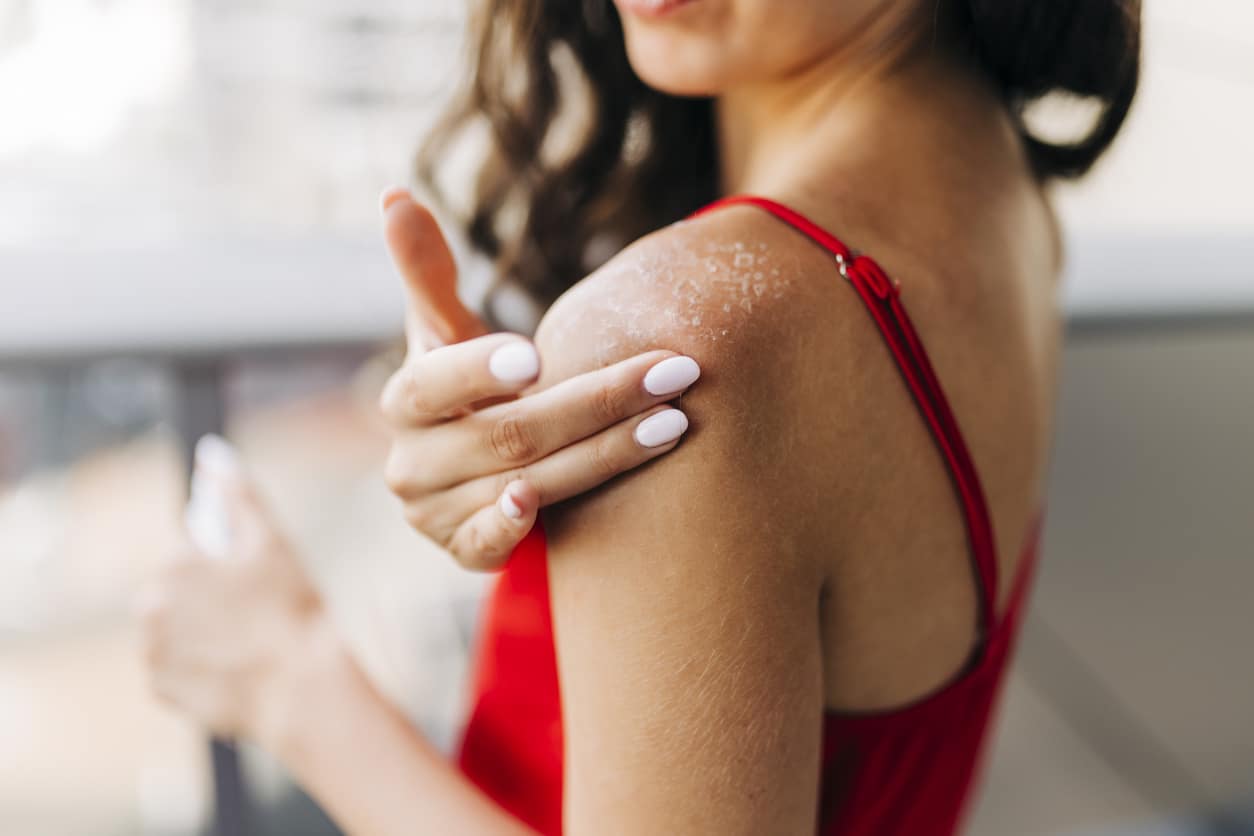Contact dermatitis occurs when your skin comes into contact with a substance, organism, object or chemical it is allergic to or irritated by. The two types of contact dermatitis include:
- Irritant contact dermatitis. Occurs when the rash comes on quickly as a response to an irritating substance.
- Allergic contact dermatitis. Occurs when the body has an allergic response to an allergen and presents with a rash.
Contact dermatitis can affect people of all ages but is most frequently found in females, infants, older people and individuals with atopic tendencies (those with a genetic tendency to develop allergic diseases). Symptoms of contact dermatitis may include but are not limited to:
- Itchy rash
- Hyperpigmentation
- Leathery-feeling skin
- Dry, cracked or scaly skin
- Bumps and blisters
- Swelling
- Burning or tenderness
Avoiding irritants and allergens is important in preventing contact dermatitis. Let’s look at a couple of common causes of contact dermatitis and how you can avoid them.
Who is most likely to be affected?

People who work in certain fields have a higher risk of developing contact dermatitis as they’re frequently exposed to irritants. High-risk fields may include but are not limited to:
- Construction workers
- Hairstylists
- Mechanics
- Artists
- Janitors
- Florists
- Machinists
- Agricultural workers
- Food handlers (cooks, servers, etc.)
- Health care workers
People working in these fields frequently come into contact with one or more common irritants causing contact dermatitis. Their reactions will vary based on their sensitivity and the strength of the irritant or allergen.
Common Irritants and Allergens
Common causes of irritant contact dermatitis include:
- Solvents such as cleaners, acetone, turpentine, mineral spirits and more
- Rubber gloves
- Bleach and detergents such as those used by cleaners
- Hair products such as bleach, dye and shampoo
- Plants, fertilizers and pesticides or multiple varieties
- Paints, varnishes, resins, plastics and epoxies
Common causes of allergic contact dermatitis include:
- Fragrances in skin or hair care products and perfumes
- Medications
- Preservatives or chemicals
- Plants such as poison ivy, poison oak and more
- Metals commonly used in jewelry and clothing, such as nickel
- Formaldehyde
- Airborne allergens such as pollen or insecticides
Contact dermatitis can cause an infection if you repeatedly scratch the affected area. Avoiding irritants and allergens is the best way to prevent this from happening. For instance, if you’re allergic to pollen, avoid going to Big Spring Park during high pollen count days.
If you come into contact with an irritant, wash the affected skin and make an appointment with an allergy specialist if the skin becomes infected or difficult to manage.
Contact North Alabama ENT Associates today to make an appointment with one of our allergy specialists.